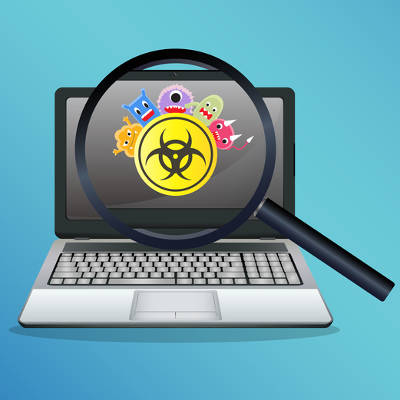Are You Guilty of These Computer Goofs?

Everyone makes mistakes. This is especially true when it comes to the technology that is used by your organization every single day. For this week’s tip, here are some things to avoid when using your computer.
Not Reading Terms
It’s something we’re all guilty of–reflexively clicking ‘Okay’ or ‘Next’ when confronted by a wall of text. However, not reading the terms and conditions of whatever it is you are trying to do (usually downloading and installing software) can potentially put you at risk. These options often include consent to have bloatware and other unpleasant programs installed on your system. Before you click through, make sure you are aware of what each prompt is having you agree to–or better yet, have your IT professional handle any installations.
Not Updating
There is an arms race being waged between software developers and hackers behind the scenes of your computer. Hackers are always seeking out vulnerabilities and weak points in the programs that you have installed. Likewise, developers are also constantly at work, patching and removing the threats caused by those vulnerabilities. If you aren’t regularly updating your solutions, you aren’t receiving the improved protections that these updates deliver, leaving you vulnerable to threats.
Not Using Surge Protection or Uninterruptible Power Supplies
Electricity is a fickle thing. The right amount will power your computer and allow you to use it, while too much can cause a damaging surge that will ruin many of a modern computer’s components. Lightning strikes hitting nearby power lines are notorious for causing these power surges. A good means of protecting your computer is to–rather than plugging it directly into the wall–power it through a surge protector. Better yet, use an Uninterruptible Power Supply, or UPS, to protect your devices. Not only do they also protect against surges, they can maintain your system briefly after a power outage so that you can avoid data loss.
Not Keeping a Backup
This is a subject that we will never stop impressing the importance of–whether or not you have a backup system in place can make or break your business. While it is always tempting to assume “Nothing like that could ever happen to me,” fires, natural disasters, and old-fashioned user error don’t discriminate. Your data’s best insurance is a comprehensive data backup. This backup should meet a few requirements, the first of which being that it is not the only copy of your data, and secondly, that these multiple copies are not stored in the same place. Ideally, your backup would be stored in the cloud, where it could be accessed once you were ready to do so.
Yes, we all make mistakes. Catalyst Technology Group is here to help you avoid making too many with your IT. For help with recovering when mistakes are made, call us at (317) 705-0333 for more information.
What It Means To Disinfect Your Computer

We have no problem going on the record as saying that there are more than enough strains of malware to go around. As such, it’s important that you know what to do if your workstation is struck by an infection.
Before we go into that, we need to clarify a few points. What is the difference between viruses and malware? In a word, categorization. A virus is just one type of malware among all the rest: spyware, adware, ransomware, et cetera. So, all viruses are malware, but not all malwares are viruses. However, almost all security solutions are described as ‘antivirus.’
Regardless of what they are called, you need to know the proper steps to removing threats like viruses or malware from your systems. Your very first step should be to call an MSP to observe, helping to ensure the process goes smoothly. Even better, the MSP could be handling the maintenance of your IT, proactively monitoring it for threats and resolving them before they manifest and cause troubles.
An MSP can remotely access the infected device in order to check for other pieces of malware. They might remove temporary files, which will let them scan the device faster and could even remove a piece of malware in and of itself. Once the scan is complete and any malware has been removed, there may be a need to repair or reinstall your operating system or web browser. This is why it is important to keep files on the network and safely backed up. This way, if you do need to reinstall the OS on one of your workstations, you will not lose any of your files.
To avoid these circumstances, it is best to keep your computer protected with the latest versions of your security software to ensure that they are able to defend against the latest iterations of malware. Your programs should be kept up-to-date for the same reason—many updates are devoted to security improvements, and if you have gone without updating, you are sacrificing your potential security.
It is also wise to change all of the passwords to your online accounts, as malware can have an unpleasant habit of recording them. You should also make sure your staff is aware of the warning signs of an infection.
Catalyst Technology Group can help you with any, or all, of these measures. Call (317) 705-0333 for more information.

